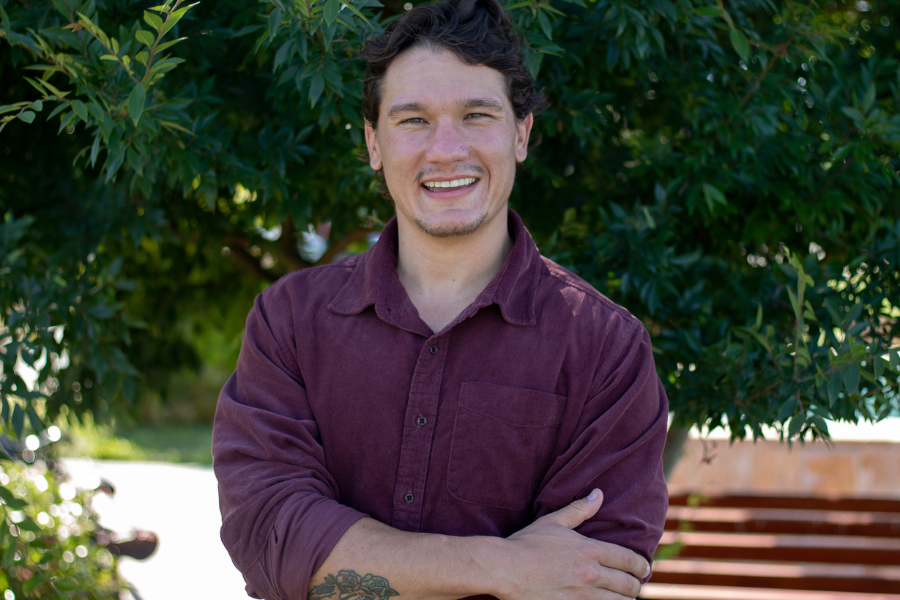Kevin Engelbert

"He conquers who endures" - Persius
College: Arts and Sciences
Degree Program: Chemical Oceanography
Degree: Master's
Why FSU?
My advisor and mentor, Dr. Breithaupt, from the Department of Earth, Ocean, and Atmospheric Sciences, said to me when I interviewed to be his lab technician that wetland soil science will "get you stuck in the mud." He meant this both literally and figuratively, in the sense that you will literally get stuck in mud up to your hips during field work in these swampy wetlands and that, most importantly, the field's intrigue will keep your interests captivated throughout your scientific career. Aside from the allure of these wetlands, it was his joy and excitement toward coastal soils that made my time as a research technician in his lab so rewarding, and I knew I had to stay in the mud and continue graduate school at FSU as his graduate student.
Motivation to pursue a graduate degree
I was motivated to pursue a graduate degree because I have always been curious and eager to learn more. I believe that graduate school provides the resources and support necessary to pursue my research interests and make a significant contribution to my field to stand out as a professional. I was motivated to be devoted to my studies and education completely, to see how I could excel, as opposed to working full-time jobs during my undergraduate career.
Importance and/or impact of research and work
Marine sediment biogeochemistry is an essential area of research because marine sediments play a critical role in sequestering carbon, which can help mitigate rising carbon dioxide levels. In addition to its impact on the global carbon cycle, marine sediment biogeochemistry is also crucial for maintaining the health of marine ecosystems. Sediments are critical for marine ecosystem health and foodwebs.
Career aspirations
My career aspirations encompass a diverse range of fields, driven by my passion for innovation, sustainability, and making a positive impact on society. Over the years, my aspirations have evolved and expanded, reflecting my deep interest and commitment to various fields. First and foremost, my recent focus lies in the realm of geomatics. I envision owning a business that harnesses the potential of cutting-edge technologies such as drone aerial imagery used in photogrammetry to create 3D geospatial representations and bathymetry to deliver highly precise geospatial data to clients. By leveraging these tools, I aim to provide invaluable insights and solutions for diverse sectors, including urban planning, environmental management, and infrastructure development. Furthermore, drawing from my background in geochemistry and geomorphology, I aspire to contribute to the energy sector. My goal is to play an active role in ensuring the provision of affordable and responsible energy solutions to meet the growing global demand. By combining scientific expertise with an understanding of sustainable practices, I strive to provide proficient and practical solutions to transition to a sustainable energy future. Through these diverse career aspirations, I seek to make a meaningful difference in multiple domains. By integrating technology, sustainability, and a passion for safeguarding our resources, I aim to contribute to a more prosperous and sustainable future for our society and the planet.
Advice for anyone considering graduate school
My advice for anyone considering graduate school is to connect with a professor who can support your growth as a professional. Consider what skills you want to leave graduate school with that can aid you in your career aspirations.
Accomplishments during graduate career
I am most proud of my work as a mentor to students in our lab. I am passionate about sharing my knowledge and helping them achieve their goals. It is gratifying to see them accomplish laboratory feats, and to see them display expertise and confidence. Moreover, I am the recipient of the 2023 Graduate Student Excellence in the Visual Arts Award and the 2023 Research Support Award by the Southern Association of Marine Laboratories (SAML)
